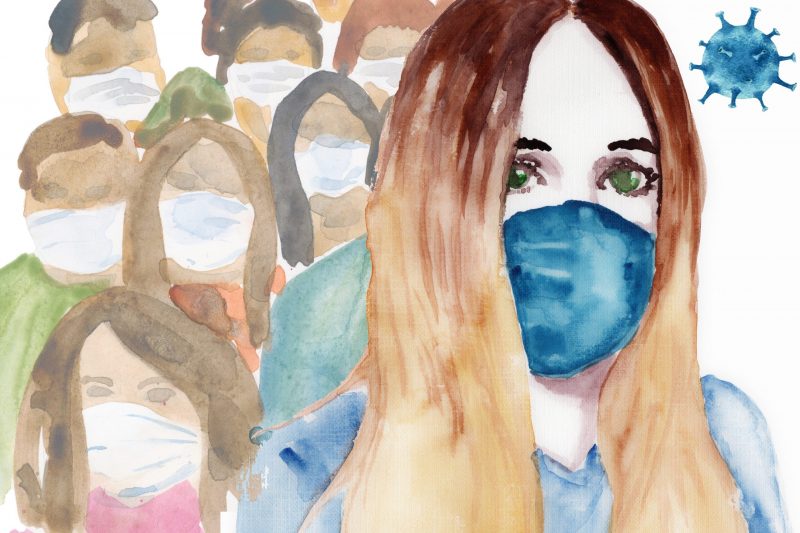
How to provide care for people with schizophrenia: challenges posed by the COVID-19 pandemic
In this section
Nowadays, the target for the treatment of people with schizophrenia is not simply the remission of positive symptoms, but also functional remission bringing better quality and higher quantity of life for patients – started her presentation Professor Silvana Galderisi. Functional remission does not result solely from the improvement of psychopathology; several other factors contribute to patients’ improved functioning, like those related to the illness, personal resources or the social context of patients.1 Not only quality, but also the quantity of life is affected by schizophrenia: on average, patients lose 14.5 years of life.2
Now, we need to ask ourselves whether the COVID-19 pandemic is adding to this already severe picture? – continued Professor Galderisi. Studies revealed that compared to those without a mental health disorder, patients with a severe mental illness had a higher risk of getting infected with SARS-CoV-2 and having a more severe course of illness, and this effect was the highest for depression and schizophrenia.3 The factors making schizophrenia patients more vulnerable to contacting COVID-19 include poor living conditions (e.g., homelessness, crowded residences)3, poor insight4, cognitive impairment4, negative symptoms3, substance misuse (causing impaired judgement)3 – all causing difficulty for patients to appraise and comply with health care authorities’ preventive measures.3 Moreover, in schizophrenia patients, prevalent physical comorbidities (e.g., cardiovascular disease, chronic respiratory disease)3, smoking5, and limited and delayed access to medical care (lower ICU-admissions and higher in-hospital mortality rate)5 increase the chance of poorer COVID-19 disease-outcome.3 Limited access to mental health care during the pandemic is a crucial aspect, as the discontinuation of pharmacological and psychosocial treatments carries severe consequences, like symptom exacerbation, social isolation, worsening mental and physical health condition and potential relapse.3,5
In order to minimise these vulnerability factors, Professor Galderisi offered a few suggestions. She urged clinicians to keep regular contact with patients (via audio/video calls, internet-based education and treatment programs);5 strengthen domiciliary care; collaborate with laboratories and pharmacies to provide patients with routine tests and medication; and provide social support and advice on pandemic-related issues.3 Although all these aspects bring difficulties and challenges, “it is our task to prevent treatment discontinuation to the best of our abilities” – said Professor Galderisi.
In light of all the presented challenges patients with mental disorders face especially during this pandemic, Professor Galderisi shared a concluding thought: prioritising COVID-19 vaccination for people with severe mental illness.6
References
- Galderisi, S. et al. The interplay among psychopathology, personal resources, context-related factors and real-life functioning in schizophrenia: stability in relationships after 4 years and differences in network structure between recovered and non-recovered patients. World Psychiatry 19, 81–91 (2020).
- Hjorthøj, C., Stürup, A. E., McGrath, J. J. & Nordentoft, M. Years of potential life lost and life expectancy in schizophrenia: a systematic review and meta-analysis. The Lancet Psychiatry 4, 295–301 (2017).
- Moreno, C. et al. How mental health care should change as a consequence of the COVID-19 pandemic. The Lancet Psychiatry 7, 813–824 (2020).
- Yao, H., Chen, J. H. & Xu, Y. F. Patients with mental health disorders in the COVID-19 epidemic. The Lancet Psychiatry 7, e21 (2020).
- Kozloff, N., Mulsant, B. H., Stergiopoulos, V. & Voineskos, A. N. The COVID-19 global pandemic: Implications for people with schizophrenia and related disorders. Schizophr. Bull. 46, 752–757 (2020).
- De Hert, M., Mazereel, V., Detraux, J. & Van Assche, K. Prioritizing COVID-19 vaccination for people with severe mental illness. World Psychiatry 20, 54–55 (2021).
COVID-19 AND PSYCHIATRIC ILLNESSES
A recent study by Taquet et al.1 from Oxford University was published in The Lancet Psychiatry showing that COVID-19 might have a bidirectional association with
more…EARLY INTERVENTION IN PSYCHOSES
Early Intervention in Psychoses: Assessment and Treatment to Improve Functional Outcomes
more…

